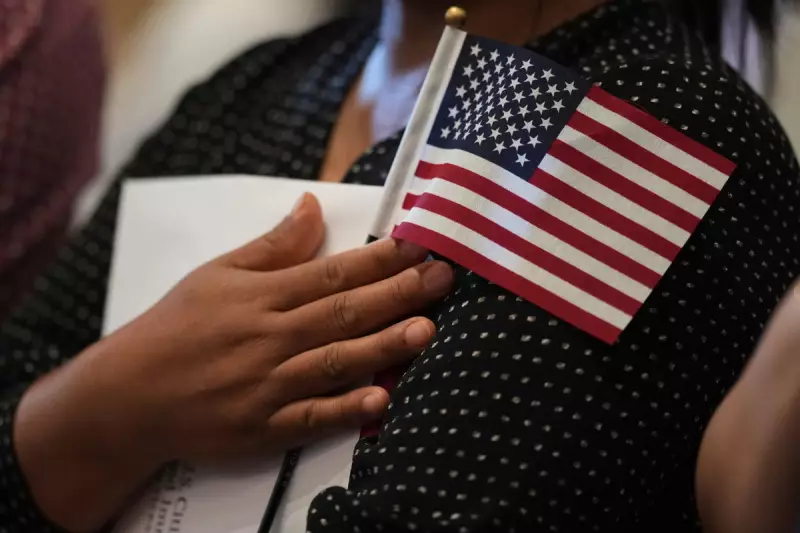
Naturalised American citizens who once believed their status was secure are now confronting a wave of anxiety, as the Trump administration's hardline immigration policies shake the very foundations of their belonging.
A Broken Promise of Belonging
Dauda Sesay, a 44-year-old who escaped the civil war in Sierra Leone, found refuge in the United States over fifteen years ago. He embraced the promise that citizenship would forge an unbreakable bond with his new home. When he took the oath of allegiance, he truly believed he belonged. Today, that conviction is crumbling.
Sesay, who now works as an advocate for refugee integration, reflects a growing sentiment among naturalised citizens. The push for mass deportations and challenges to birthright citizenship have created a ripple effect, transforming what was once considered bedrock protection into something far more precarious.
Living in a Climate of Fear
The fears are both practical and profound. Many now hesitate to travel abroad, worried that their US passport may not guarantee a smooth return amid accounts of naturalised citizens being detained and questioned by border agents. Domestically, stories of US citizens being wrongly accused of being in the country illegally have prompted caution.
Sesay no longer travels within the US without his passport, despite possessing a REAL ID. Aggressive immigration enforcement operations, sometimes involving masked federal agents in cities like Chicago and New York, have occasionally swept up American citizens in their dragnets, leading to at least one federal lawsuit.
Compounding these concerns, the Justice Department issued a memo in the summer of 2025 announcing it would intensify efforts to strip citizenship from immigrants who committed crimes or were deemed national security risks. President Trump himself publicly threatened the citizenship of Zohran Mamdani, the 34-year-old democratic socialist mayor-elect of New York City.
The atmosphere is so charged that many naturalised citizens are afraid to speak publicly. Through several community organisations, requests for comment found no one other than Sesay willing to go on the record.
A Historical Precedent for Exclusion
This is not the first time the definition and security of US citizenship have been contested. Professor Stephen Kantrowitz of the University of Wisconsin-Madison notes that the meaning of 'citizen' was left undefined in the original Constitution.
American history is marked by periods of exclusion and revocation. The first naturalisation law in 1790 restricted citizenship to "free white persons." The Immigration Act of 1924 effectively barred people from Asia. The 1923 Supreme Court case U.S. vs. Bhagat Singh Thind led to the denaturalisation of dozens of Indians, and the internment of Japanese Americans during World War II showed that citizenship could be simply ignored.
For naturalised citizens like Cindy Nava, a New Mexico state senator who once had DACA status, the current fear among those who were previously secure is a shocking development. She observes that people who were never afraid before are now uncertain about their safety net.
For Dauda Sesay, the emotional impact is profound. He feels a deep sense of betrayal, stating that the America he sees today is not the country he pledged his allegiance to when he put his hand over his heart.





